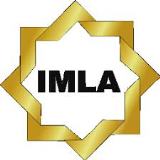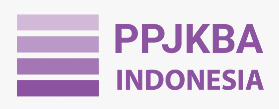Strategies for Developing Public Speaking Skills in Arabic for Students of the Pondok Pesantren Al-Itqon Kendal / إستراتيجيات تطوير مهارة الخطابة العامة باللغة العربية لدى طلبة معهد الإتقان الإسلامي كندال
DOI:
https://doi.org/10.22515/athla.v5i2.10248Keywords:
Arabic language, Communication skills , Islamic boarding school, Public speaking, Self-confidenceAbstract
Pondok Pesantren Al-Itqon Kendal has developed programs to enhance the Arabic public speaking skills of its students, which include three main programs: regular Arabic speech, speech writing (Insya'), and spontaneous speaking practice (Muhadatsah). These programs are designed to enhance students' communication abilities, not only in public speaking but also in building character, self-confidence, and mental preparedness. Through varied tasks, students are given the opportunity to act as emcees, speakers, or keynote speakers, all conducted in Arabic. Additionally, each program is complemented by constructive feedback from supervisors and teachers to improve strengths and weaknesses in speaking. The results show that the program successfully addresses the overcoming public speaking anxiety, improves delivery techniques, and strengthens leadership and social skills. Furthermore, social learning theory and experiential learning provide a strong foundation for this skill development, where observation, imitation, and repeated practice play a key role in enhancing speaking abilities in front of an audience. Overall, this public speaking program contributes significantly to character development and social skills, preparing students to become ambassadors of knowledge and religious values in society.
Downloads
References
Al Yamin, D. L. (2023). Bahasa Arab Sebagai Identitas Budaya Islam dan Pemersatu Keberagaman Suku. Ta’limi | Journal of Arabic Education and Arabic Studies, 2(1), 73–86. https://doi.org/10.53038/tlmi.v2i1.60
Ansani, & H. Muhammad Samsir. (2022). Teori Pemodelan Bandura. Jurnal Multidisiplin Madani, 2(7), 3067–3080. https://doi.org/10.55927/mudima.v2i7.692
Atsaniyah, L. N. (2021). Upaya Peningkatan Keterampilan Berbicara Bahasa Arab dengan Metode Cooperative Learning Melalui Kegiatan Muhadhoroh. Semnasbama, 619–628.
DeVito, J. (2001). The Interpersonal Communication Course. Pearson, 3(1), 1–20.
Diri, M. P., Desa, M., Sakti, J., Muara, K., Kabupaten Bekasi, G., Barat Abriandi, J., Ariani, J., & Harsy, A. F. (2023). Sosialisasi Public Speaking dan Pelatihan Leadership dalam. Jurnal Masyarakat, 3(1), 1–12.
Hattie, J., & Timperley, H. (2007). The power of feedback. Review of Educational Research, 77(1), 81–112. https://doi.org/10.3102/003465430298487
Intiha Bima Tafriha, & Moh. Abdul Kholiq Hasan. (2024). The Influence of Self-Efficacy on Arabic Public Speaking Anxiety/تأثير الكفاءة الذاتية على قلق التحدث باللغة العربية أمام الجمهور. ATHLA : Journal of Arabic Teaching, Linguistic and Literature, 5(1), 16–27. https://doi.org/10.22515/athla.v5i1.9428
Intiha Bima Tafriha, & Moh. Abdul Kholiq Hasan. (2024). The Influence of Self-Efficacy on Arabic Public Speaking Anxiety/تأثير الكفاءة الذاتية على قلق التحدث باللغة العربية أمام الجمهور. ATHLA : Journal of Arabic Teaching, Linguistic and Literature, 5(1), 16–27. https://doi.org/10.22515/athla.v5i1.9428
LESILOLO, H. J. (2019). Penerapan Teori Belajar Sosial Albert Bandura Dalam Proses Belajar Mengajar Di Sekolah. KENOSIS: Jurnal Kajian Teologi, 4(2), 186–202. https://doi.org/10.37196/kenosis.v4i2.67
Masten, A. S., & Coatsworth, J. D. (1998). The Development of Competence in Favorable and Unfavorable Environments: Lessons from Research on Successful Children. American Psychologist, 53(2), 205–220. https://doi.org/10.1037/0003-066X.53.2.205
Menzel, K. E., & Carrell, L. J. (1994). The relationship between preparation and performance in public speaking. Communication Education, 43(1), 17–26. https://doi.org/10.1080/03634529409378958
Mursyid, M., & Yono. (2022). Efektivitas Program Muhadhoroh Terhadap Peningkatan
Kemampuan Public Speaking Siswa di Majlis Ta’lim Riyadul Hasanka Kp. Kebon Kopi. Abdi Dosen: Jurnal Pengabdian Pada Masyarakat, 6(1), 42–49.
Nana Syaodih. Metodologi Penelitian Pendidikan. bandung: PT. Raja Rosdakarya, 2014.
Pahleviannur, M. R., De Grave, A., Saputra, D. N., Mardianto, D., Hafrida, L., Bano, V. O., & Sinthania, D. (2022). Metodologi penelitian kualitatif. Pradina Pustaka.
Pera Aprizal, A. (2021). Urgensi Pembelajaran Bahasa Arab dalam Pendidikan Islam. Jurnal Pendidikan Guru, 2(2), 22–40. https://doi.org/10.47783/jurpendigu.v2i2.232
Sugiono. Metodologi Penelitian Pendidikan. Bandung: Alfabeta, 2014
Syamsudin dan Vismaia. Metodologi Penelitian Pendidikan Bahasa. Bandung: PT. Remaja Rosdakarya, 2007.
Talalu, T. R. (2022). KENDALA PUBLIC SPEAKING DAN SOLUSI KECEMASAN KOMUNIKASI. Dinamika Penelitian: Media Komunikasi Penelitian Sosial Keagamaan, 22(02), 263-282.
Wahab, R. (2014). Metodologi penelitian kualitatif. Yogyakarta: Universitas Negeri Yogyakarta.
Wakhidiani, D. (2023). Pengaruh Model Experiential Learning Terhadap Aktivitas dan Hasil Belajar Siswa pada Pembelajaran Terpadu. Media Informasi, 32(2), 204–213. https://doi.org/10.22146/mi.v32i2.7561
Yulianto, H. (2023). Public Speaking: Seni dan Teknik Berkomunikasi di Depan Audiens. SAGUSATAL INDONESIA.
Downloads
Published
How to Cite
Issue
Section
Citation Check
License
Copyright (c) 2024 Muhammad Fahrun Nadhif, M. ‘Athif Audl Ramadlan

This work is licensed under a Creative Commons Attribution-ShareAlike 4.0 International License.










